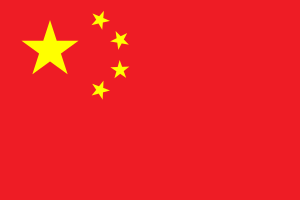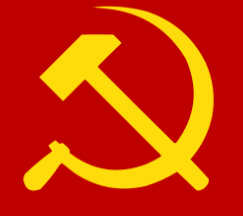More languages
More actions
No edit summary Tag: Visual edit |
m (Sources) Tag: Visual edit |
||
| Line 1: | Line 1: | ||
[[File:Flag of the People's Republic of China.svg|thumb|The four small stars on the flag of [[People's Republic of China|China]] represent the four progressive classes at the time of the [[Chinese Revolution (disambiguation)|revolution]]: the [[proletariat]], [[peasantry]], [[petty bourgeoisie]], and [[national bourgeoisie]]]] | [[File:Flag of the People's Republic of China.svg|thumb|The four small stars on the flag of [[People's Republic of China|China]] represent the four progressive classes at the time of the [[Chinese Revolution (disambiguation)|revolution]]: the [[proletariat]], [[peasantry]], [[petty bourgeoisie]], and [[national bourgeoisie]].<ref>{{Web citation|author=Yang Rui|newspaper=[[CGTN]]|title=RuiThinking: The story behind the change of the national flag guards|date=2018-01-06|url=https://news.cgtn.com/news/3045444d77677a6333566d54/index.html|archive-url=https://web.archive.org/web/20220927141258/https://news.cgtn.com/news/3045444d77677a6333566d54/index.html|archive-date=2022-09-27}}</ref>]] | ||
[[File:Communist symbol stalin flag.png|thumb|The [[hammer and sickle]] represents the unity of the proletariat and peasantry, the two main progressive classes]] | [[File:Communist symbol stalin flag.png|thumb|The [[hammer and sickle]] represents the unity of the proletariat and peasantry, the two main progressive classes.<ref>{{Web citation|newspaper=[[Great Soviet Encyclopedia]]|title=Серп и молот|url=http://bse.sci-lib.com/article101658.html}}</ref>]] | ||
The '''people''', also known as the '''working people''' or the '''masses''', refers to all the progressive [[Social class|classes]] in society, including but not limited to the [[proletariat]]. Under [[socialism]], political rights only apply to members of these popular classes. According to [[Mao Zedong|Chairman Mao]]: | The '''people''', also known as the '''working people''' or the '''masses''', refers to all the progressive [[Social class|classes]] in society, including but not limited to the [[proletariat]]. Under [[socialism]], political rights only apply to members of these popular classes. According to [[Mao Zedong|Chairman Mao]]: | ||
Revision as of 12:57, 15 January 2024


The people, also known as the working people or the masses, refers to all the progressive classes in society, including but not limited to the proletariat. Under socialism, political rights only apply to members of these popular classes. According to Chairman Mao:
Who are the people? At the present stage in China, they are the working class, the peasantry, the urban petty bourgeoisie and the national bourgeoisie. These classes, led by the working class and the Communist Party, unite to form their own state and elect their own government; they enforce their dictatorship over the running dogs of imperialism—the landlord class and bureaucrat-bourgeoisie, as well as the representatives of those classes, the Kuomintang reactionaries and their accomplices—suppress them, allow them only to behave themselves and not to be unruly in word or deed. If they speak or act in an unruly way, they will be promptly stopped and punished. Democracy is practiced within the ranks of the people, who enjoy the rights of freedom of speech, assembly, association and so on. The right to vote belongs only to the people, not to the reactionaries. The combination of these two aspects, democracy for the people and dictatorship over the reactionaries, is the people's democratic dictatorship.
— Mao Zedong, On the People's Democratic Dictatorship, 1949 June 30
See also
References
- ↑ Yang Rui (2018-01-06). "RuiThinking: The story behind the change of the national flag guards" CGTN. Archived from the original on 2022-09-27.
- ↑ "Серп и молот". Great Soviet Encyclopedia.
